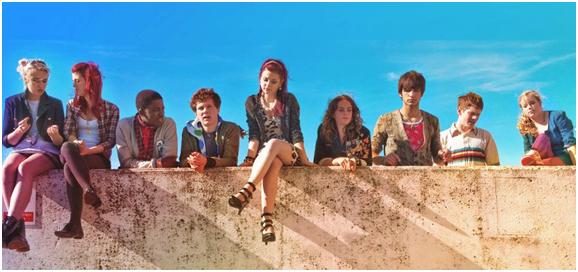The ageing issue of adult actors
It’s been seen time and time again for many years – actors in their twenties, and sometimes thirties, playing characters in high school, sometimes a decade younger than their real age. Why exactly is this? Why is it that producers and casting directors choose actors whose age is so far from that of the character that they will portray? While some do not view it as an issue, others see it as taking opportunities away from young actors and portraying an unrealistic depiction of what teenage life is like.
It is not as if this occurs only on teen dramas on more glossy networks such as the CW, but it happens across all of the major networks in the US. Across many genres, the casting directors skew slightly older in order to find more experienced actors who will gain the show more publicity and draw more fans to the opening episodes in an effort to help ratings. There is, of course, an economic factor to the casting of older actors as, especially in America, there are strict child labour laws restricting the amount of hours that the young actors can work. But this is easily worked around in films and with child actors so why is it a different case for teens? Regardless, it’s cheaper and easier for studios to hire older actors.
While some do not view it as an issue, others see it as taking opportunities away from young actors and portraying an unrealistic depiction of what teenage life is like.
It is also understandable that the producers want to find talents who can connect to the issues that their characters are facing, as they may also have undergone similar problems, but it is surely not that difficult to find talented actors who are currently going through the struggles to portray them. But the case then lies that casting older actors takes opportunities away from younger actors as, if they cannot play characters their own age, what roles are there for them, and how will they ever develop their talent?
The casting of younger actors is perhaps why Skins was so successful in the UK for so many years – the protagonists were portrayed by actual teenagers, rather than those in their mid-twenties who are more detached from the mentality of the age group and the debauchery of first-time experimentation with drugs and sex etc. It is not that what Skins was showing was particularly realistic in its events, it’s the honesty and truth in the performances of the young actors that brings a sense of realism. One standout young actor was Kaya Scodelario who was only 14 when she began the role of Effy Stonem, with no previous acting experience. Similarly, this is just one reason why Skins failed so miserably across the pond – American audiences were simply not used to such an illicit depiction of youth with a cast who do not look and act perfectly, or perhaps a cast that the lack of innocence more real.

pictured: Crystal Reed, 29, in her role as Allison Argent, 17 in series 1. source: http://teenwolf.wikia.com/wiki/
Certain US programmes – such as MTV’s Teen Wolf – make a point of the characters’ youth, but two main characters Tyler Hoechlin (Derek) and Crystal Reed (Allison) are 26 and 29 respectively, in contrast to their teenage alter-egos. Another offender is The CW’s The Vampire Diaries withPaul Wesley, who portrays Stefan, 17 year old vampire, was 27 when the show premiered in 2009 and is aging further from his character’s age season by season. Bianca Lawson, is another actor whom is seemingly stuck in her teens, despite being an astonishing 35 years old as she has played a teen for television for 20 years – going from Saved by the Bell in 1993 to Pretty Little Liars in 2010. However, teenage actors on screen is not unheard of – The CW’s One Tree Hill cast 18 year old James Lafferty in the lead role as Nathan Scott and Taylor Momsen was only 14 when she began on Gossip Girl. The question of why such cases are few and far between I, alas, do not have an answer for.
Ignoring the issues for the actor themselves, the way in which their characters are depicted has a negative impact on its audience; actual teenagers. Is a seventeen year old boy meant to have Hoechlin’s or Wesley’s muscles that are so frequently showcased? Are the fashions and perfect features found in Gossip Girl and Pretty Little Liars meant to be mirrored in real life? The answer is no and the truth is simple: a distorted view of teenage life is displayed on television. It may not be the case that every single portrayal of a teenager contributes to teenage anxiety about their own appearance, but it certainly contributes to the idealised visions of beauty held in Western society that warp the views of many. Despite being an issue that is constantly picked up on, there is no real effort to actively increase the amount of teenage actors on screen on a mainstream level.
So, is the casting of older actors in younger roles a problem? Only in the manner in how the life of a teenager is glamorised with the omission in the most part of the awkwardness that teenage years can bring. This awkwardness, however, is not what viewers want to see. Teens don’t tune in to shows to see a reflection of what they face day-to-day, they seek escapism and entertainment. The viewing public are, by the by, intelligent enough to understand how the media works and that television for the most part is by no stretch of the imagination realistic. Audiences are clearly not complaining that their TV screen is being filled with beautiful people as their voyeuristic tendencies are satisfied.
Despite this, it does appear to be an institutional issue embedded in the television industry that teenagers are played by those not in their teens. No solution to the basic issue appears to be on the horizon, however, the constant hyperbolic glamorisation of teenage characters is seemingly increasingly noticed and criticised. But the issue is far from solved, the process is sure to be gradual.


Comments